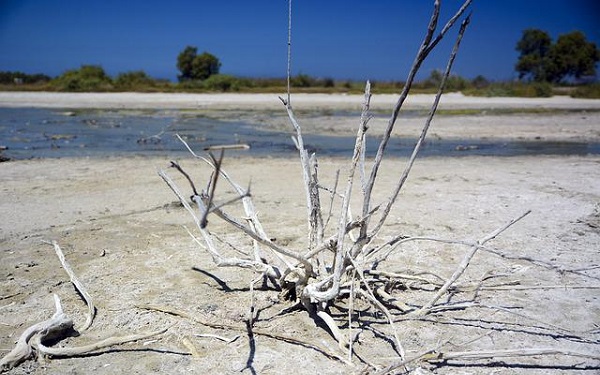May 17, 2022 | Humanity is “at a crossroads” when it comes to managing drought and accelerating mitigation must be done “urgently, using every tool we can,” says a new report from the United Nations Convention to Combat Desertification (UNCCD). Since 2000, i.e., in one generation, the number and duration of droughts has risen 29%.
Report released during COP15
Drought in Numbers, 2022, released on May 11 to mark Drought Day at UNCCD’s 15th Conference of Parties (COP15, May 9-20 in Abidjan, Côte d’Ivoire) – calls for making a full global commitment to drought preparedness and resilience in all global regions a top priority.
The report, an authoritative compendium of drought-related information and data, helps inform negotiations of one of several decisions by UNCCD’s 196 member states, to be issued May 20 at the conclusion of COP15.
“The facts and figures of this publication all point in the same direction: an upward trajectory in the duration of droughts and the severity of impacts, not only affecting human societies but also the ecological systems upon which the survival of all life depends, including that of our own species,” says Ibrahim Thiaw, Executive Secretary of the UNCCD.
Call for action
The report creates a compelling call to action. For example:
- Since 2000, the number and duration of droughts has risen 29%
- From 1970 to 2019, weather, climate and water hazards accounted for 50% of disasters and 45% of disaster-related deaths, mostly in developing countries
- Droughts represent 15% of natural disasters but took the largest human toll, approximately 650,000 deaths from 1970-2019
- From 1998 to 2017, droughts caused global economic losses of roughly USD 124 billion
- In 2022, more than 2.3 billion people face water stress; almost 160 million children are exposed to severe and prolonged droughts
Unless action is stepped up:
- By 2030, an estimated 700 million people will be at risk of being displaced by drought
- By 2040, an estimated one in four children will live in areas with extreme water shortages
- By 2050, droughts may affect over three-quarters of the world’s population, and an estimated 4.8-5.7 billion people will live in areas that are water-scarce for at least one month each year, up from 3.6 billion today.
- And up to 216 million people could be forced to migrate by 2050, largely due to drought in combination with other factors including water scarcity, declining crop productivity, sea-level rise, and overpopulation
Countries are willing to shift to a proactive approach to drought
The new UNCCD report notes that 128 countries have expressed willingness to achieve or exceed Land Degradation Neutrality. And nearly 70 countries participated in the UNCCD’s global drought initiative, which aims to shift from reactive approaches to drought to a proactive and risk-reducing approach.
Mr. Thiaw underlined the importance of promoting public awareness about desertification and drought, and letting people know the problems can be effectively tackled “through ingenuity, commitment and solidarity.”
Further information is available at the UNCCD website.







